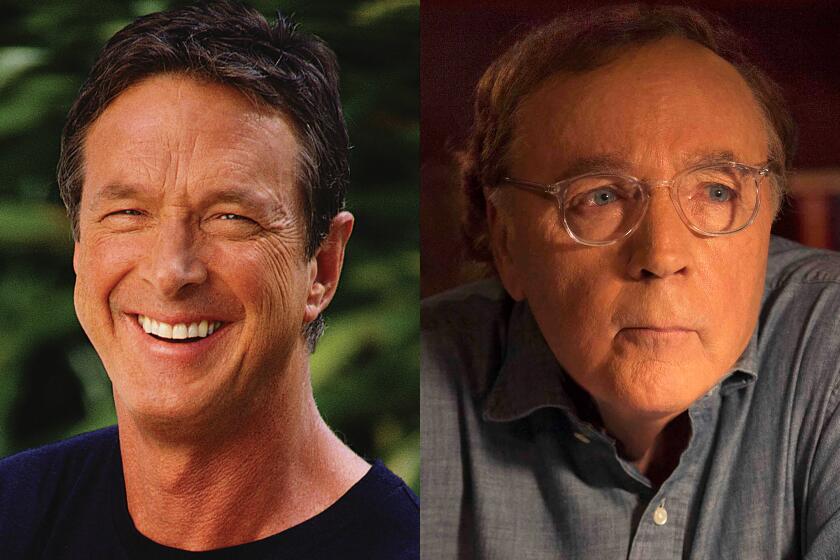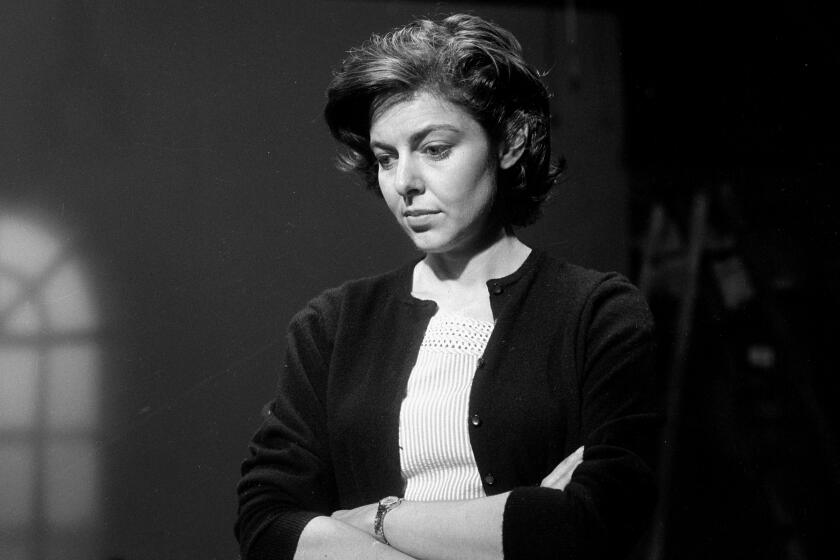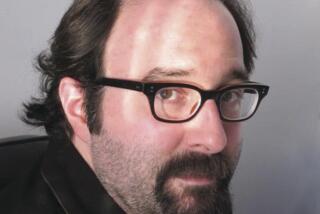We’re living in a new age of McCarthyism, says author Patrick Nathan
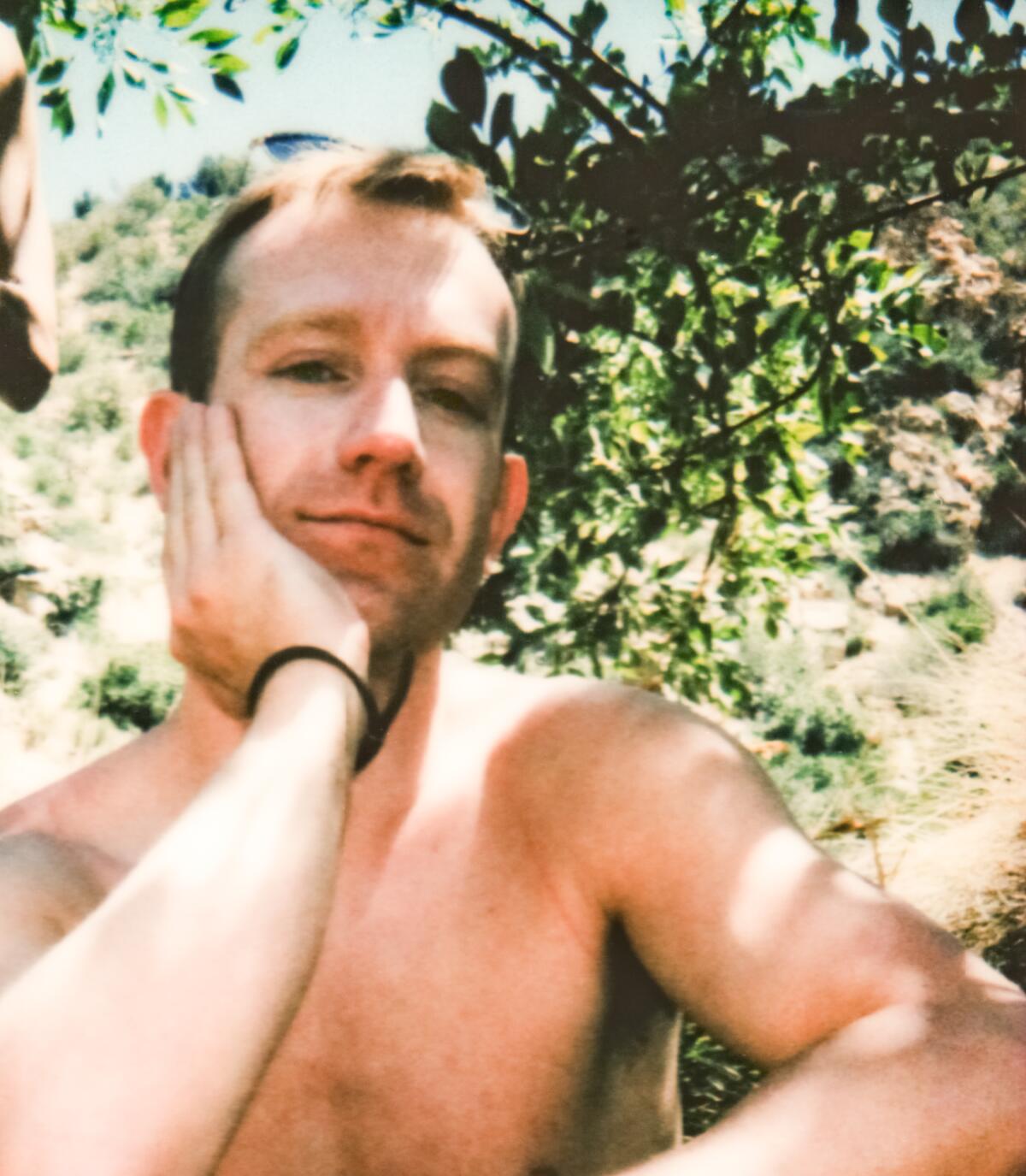
On the Shelf
The Future Was Color
By Patrick Nathan
Counterpoint: 224 pages, $26
If you buy books linked on our site, The Times may earn a commission from Bookshop.org, whose fees support independent bookstores.
We first meet George Curtis, the protagonist of Patrick Nathan’s “The Future Was Color,” as he steps out of a movie theater into an autumn day in 1956 Los Angeles, a city where “a road named after a flower meets another named after a crook,” a city, George observes, where “most of the Americans … seemed seduced.” Curtis makes his living as a Hollywood screenwriter, penning B-horror movies filled with irradiated mutants and monsters.
The inspiration for George, Patrick Nathan told The Times during a leisurely chat via video call from his home in Minneapolis, came from his time spent at a local diner, Bad Waitress. “I went there for years and wrote a lot of work there,” he says. Dozens of old movie posters, especially science fiction, adorned its walls. “One day, I was really bored waiting for my food, and I was reading the tiny print at the bottom of a poster for the 1958 film ‘Earth vs. the Spider.’ And the screenplay was attributed to László Görög.”
Although George isn’t based on Görög, Nathan says it was immediately apparent that as a Hungarian living in Hollywood, he must have been a war émigré. “It got me thinking about what it would be like to leave a very cosmopolitan city [like Budapest] and go to this beautiful but backwatery town that basically has one industry.”
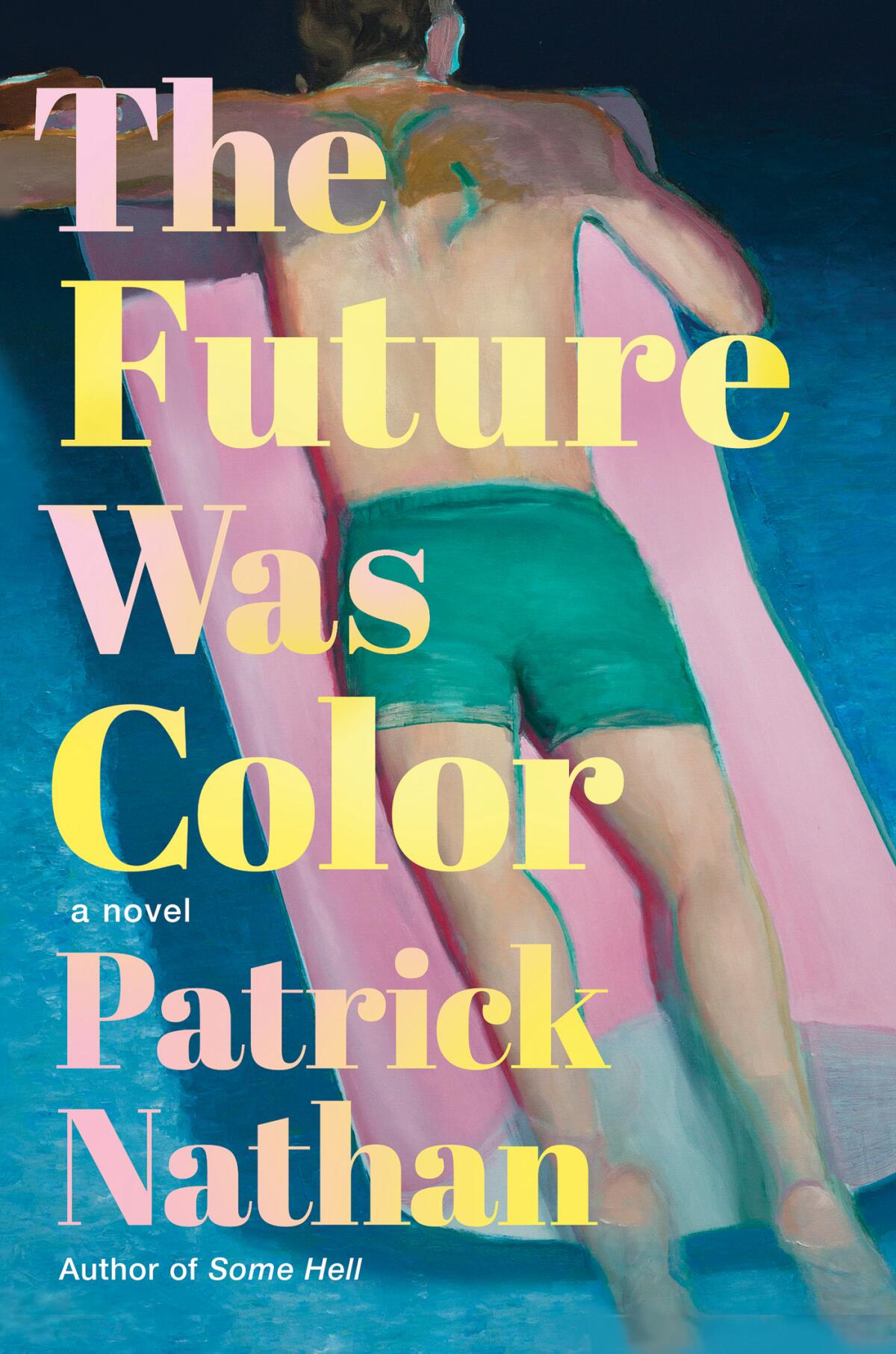
Nathan took inspiration from that single name and delivered a riveting novel that explores basic existential questions ranging from “What is life’s purpose?” to “How can there be light and happiness in dark times?” History was ruptured in the 1950s; how could life go on after the revelation of World War II death camps and the creation of a bomb that could incinerate a city’s population with a single blast? These questions make “The Future Was Color” timely in 2024 America.
“What pops up in such a world is so much shame. Things are so awful. You ask yourself whether you can enjoy life when all this is going on. Do I have a right to enjoy my life? Yet, we do,” Nathan says.
Nathan recalls “Cassandra: A Novel and Four Essays,” in which East German writer Christa Wolf wrote about how on even some of the worst days of the Cold War in Europe, she would enjoy a nice lunch while laughing with friends over a glass of wine. That happiness could be found in the joys of daily life even if the threat of nuclear war was omnipresent.
For gay men and women, 1950s conformity enforced by McCarthyism meant that the revelation of their sexuality could lead to financial ruin, ostracism and even worse. In the novel, Nathan writes about the complexities of gay life during such a time — some characters chase sexual pleasure but do not permit themselves to feel emotional attachments to the men they’re with.
With James Patterson and Michael Crichton, two of publishing’s most popular authors on the marquee, ‘Eruption’ is this summer’s literary version of a blockbuster action movie.
In Malibu, George spends a week with his friends Madeline, a movie star; her husband, Walt, who is gay; Jacques, who is George’s latest twink amusement; and George’s writing partner and secret crush, Jack. Full of snappy and snappish dialogue, the book imagines a carnival-esque week’s idyll in the “shantytown of millionaires” that was 1950s Malibu.
Nathan grew up in Minnesota and now lives in Minneapolis with his husband. He previously published “Some Hell,” a gay bildungsroman that was a finalist for the 2018 Lambda Literary Award, and nonfiction with 2021’s “Image Control.” That work examined fascism and its diffusion through social media, focusing on how that medium reduced complex issues to sound bites and visual images.
Does the veneer of the movies and the ways that gay men had to hide their identities beneath artificial surfaces connect “The Future Was Color” to “Image Control”?
“George is fascinated by the delivery of disaster via spectacle; the way disaster becomes commodified is obviously one of his obsessions,” Nathan said. “But I was focused in writing this book on the kind of balance between being politically committed and wanting to have a life.
“In ‘Image Control,’ I talked about how we’re bombarded constantly with this idea that we need to act or participate. We need to do something. And it’s all very real. But at the same time, lilacs are blooming and birds are flapping around in the trees. [I wanted to] explore how do you reconcile being alive with having a vision for the way things should be.”
Despite the big shrug off by Elaine May, who doesn’t do interviews, Carrie Courogen has produced the definitive book about the comedy icon’s life and career.
Happiness is not a steady state despite its pursuit by Americans. “I think what a lot of people think when they’re trying to chase happiness is that they’re actually chasing security,” Nathan said. “As George discovers in every life, happiness is like a star’s scratch across the night.”
It turns out, however, that for an author, happiness is more difficult to write about than disaster or sadness. “I think it’s almost as though joy is one of the only things that doesn’t create the problem that we try to resolve with language. So then we don’t really think about it,” Nathan says. “Being happy is one of the only things that doesn’t take us out of time.”
Nathan sees echoes of the 1950s in 2020s America. The anti-communist fervor of the ’50s has become fascism. “People ask me when I think the apocalypse is going to happen, and I tell them that we’re in it. It’s easier to get shot by a stranger than to get adequate healthcare — that’s the country we live in.
“If you had told someone 40 years ago that this was the way things were going to be, they would say that the government collapsed. And, in a manner of speaking, the government has collapsed. The most concerning thing for me is the rapid collapse in the credibility of government institutions these past few years. That’s not something you can recover from easily.”
Despite his awareness of all that confronts us, Nathan is not a cynic. In a world in flux, the cliches hold true that “one of our greatest strengths and most awful weaknesses is our adaptability. We’re constantly adjusting to changes in our environment. But it also means we’re constantly creating based on what is destroyed, constantly adding back to the world when things get taken away.”
More to Read
Sign up for our Book Club newsletter
Get the latest news, events and more from the Los Angeles Times Book Club, and help us get L.A. reading and talking.
You may occasionally receive promotional content from the Los Angeles Times.
